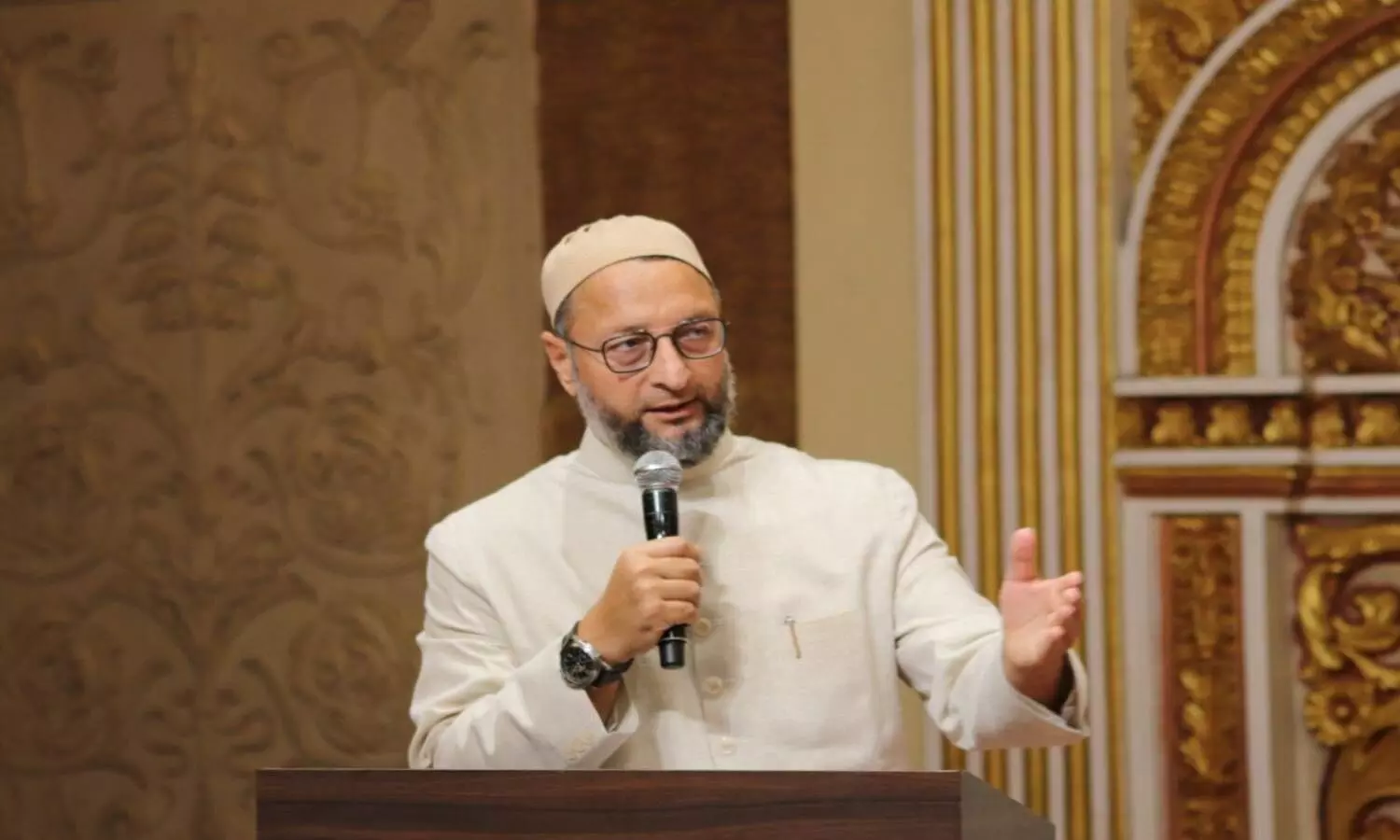Muslims second-poorest group in TS; Owaisi seeks aid on lines of Dalit Bandhu
“Poverty is increasing among Muslims in Telangana and their participation in employment and land ownership is very low. Only 4% of Muslims have government jobs,” Owaisi said
By Newsmeter Network
Hyderabad: Muslims constitute 12.7 per cent of Telangana's population, nearly 4.5 million in a total population of 35 million. Despite being overwhelmingly urban, the Muslim population is the second-poorest, just marginally above the predominantly rural Scheduled Tribes.
All India Majlis-e-Ittehadul Muslimeen (AIMIM) president and Hyderabad Lok Sabha MP Asaduddin Owaisi presented the data at the symposium 'Muslims in Telangana' on Monday.
According to the findings of the Sudhir Commission, about 48% of Muslim households in the state live on an income of less than Rs. 10,000 a month. The table below reveals that Muslims have low asset ownership, with more than 34% living in rented houses and only 38% in pucca houses. The poverty headcount ratio for Muslims living in rural areas is as high as 26%.
The data showed that about 48% of urban Muslim men and 65% of urban Muslim women are self-employed, a higher proportion than any other socio-religious group in the state. The table below indicates that only 27% Muslims seek credit through banks, much lower than all other groups.
The government of Telangana had released 'Report of the Commission of Inquiry on Socio-Economic and Educational Conditions of Muslims' in 2016. The commission set up to issue the report was led by former IAS officer G. Sudhir who is also the chairman of the research team at the Centre for Developmental Policy and Practice (CDPP).
The commission found that the community fares poorly on most human developmental indicators. As per the Sudhir Commission report, Muslims in Telangana are getting more marginalized especially after the COVID-19 pandemic. The community, in fact, comprises a huge chunk of the poorest 20% in Telangana, said Hyderabad-based economist Amir Ullah Khan.
At the symposium, the AIMIM president said the state government has launched some path-breaking schemes to bring its citizens out of poverty. The Dalit Bandhu Yojana has now been announced where the government provides a one-time grant of Rs. 10 lakh to Dalits in the state. The main objective is to provide financial security and secure their future.
The scheme aims at empowering Dalit families and enabling entrepreneurship among them through a direct benefit transfer. Dalit Bandhu is the country's largest direct benefit transfer. It will target 11,900 Dalit families, 100 each from 119 Assembly constituencies in the state, who would be selected for cash assistance of Rs. 10 lakh each without any bank collateral to start their venture.
"Poverty is increasing among Muslims in Telangana and their participation in employment and land ownership is very low. Only 4% of Muslims have government jobs," Owaisi said demanding Rs. 10 lakh each for poor Muslim households on the lines of the Dalit Bandhu Scheme.
"The government should provide Rs. 10 lakh to at least 2% of the Muslim population living in abject poverty. If not two, then to at least 1% of the people," he added.